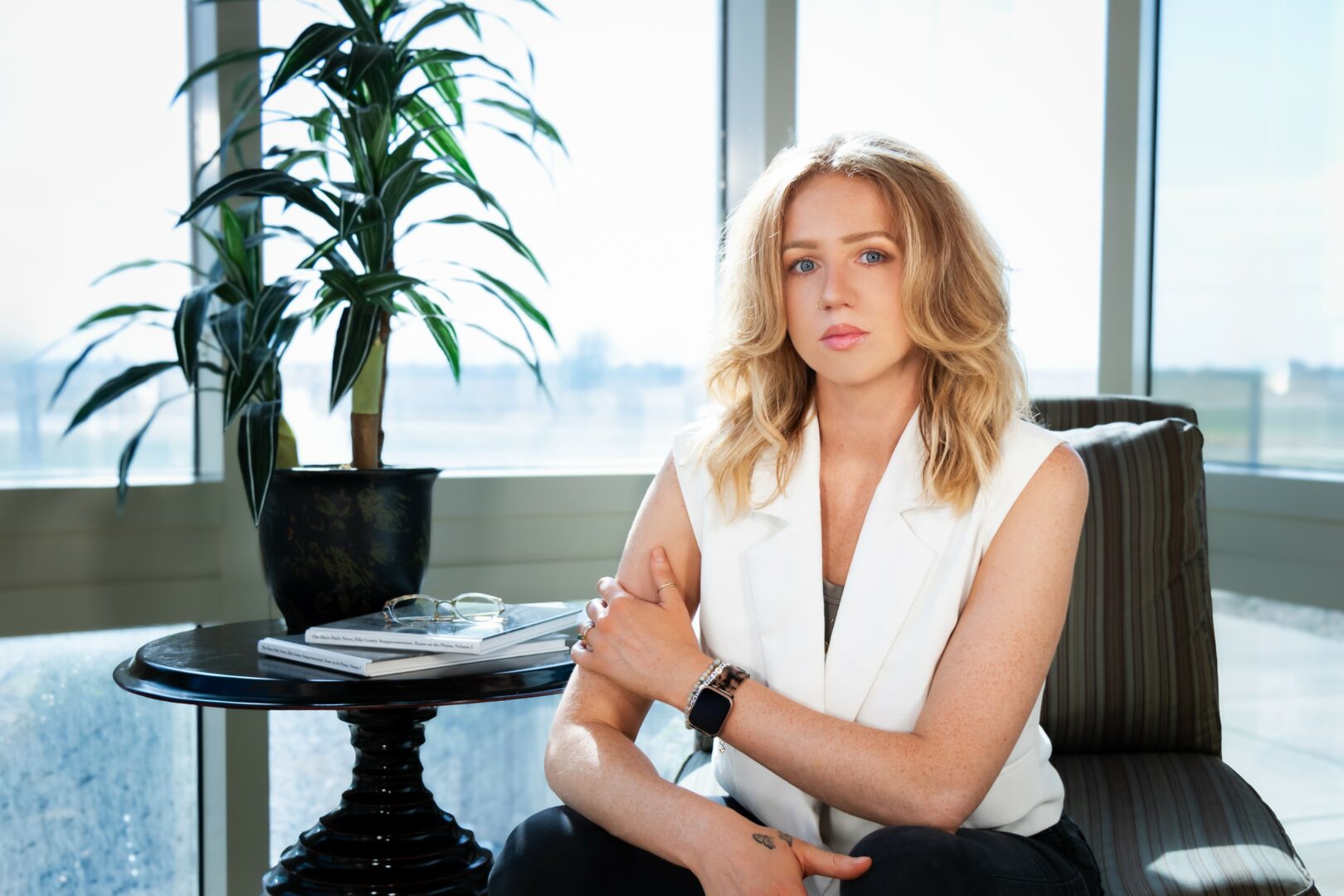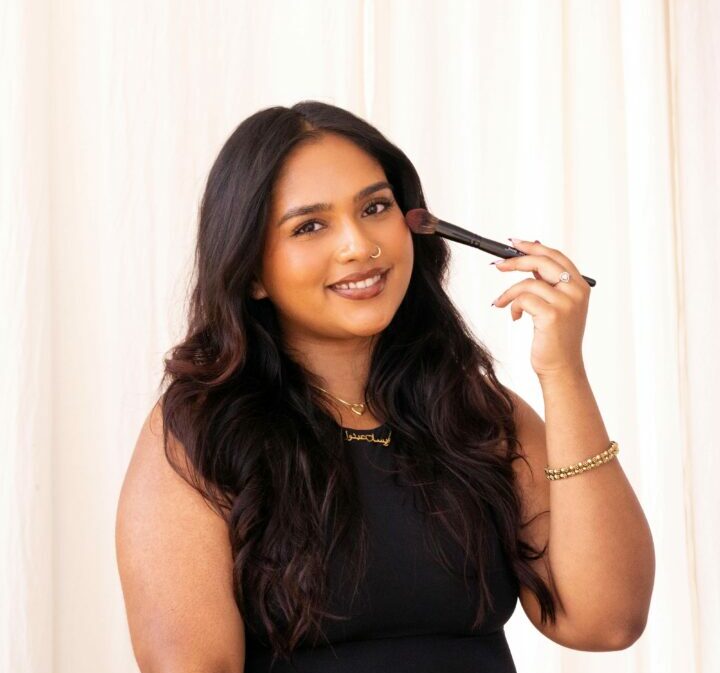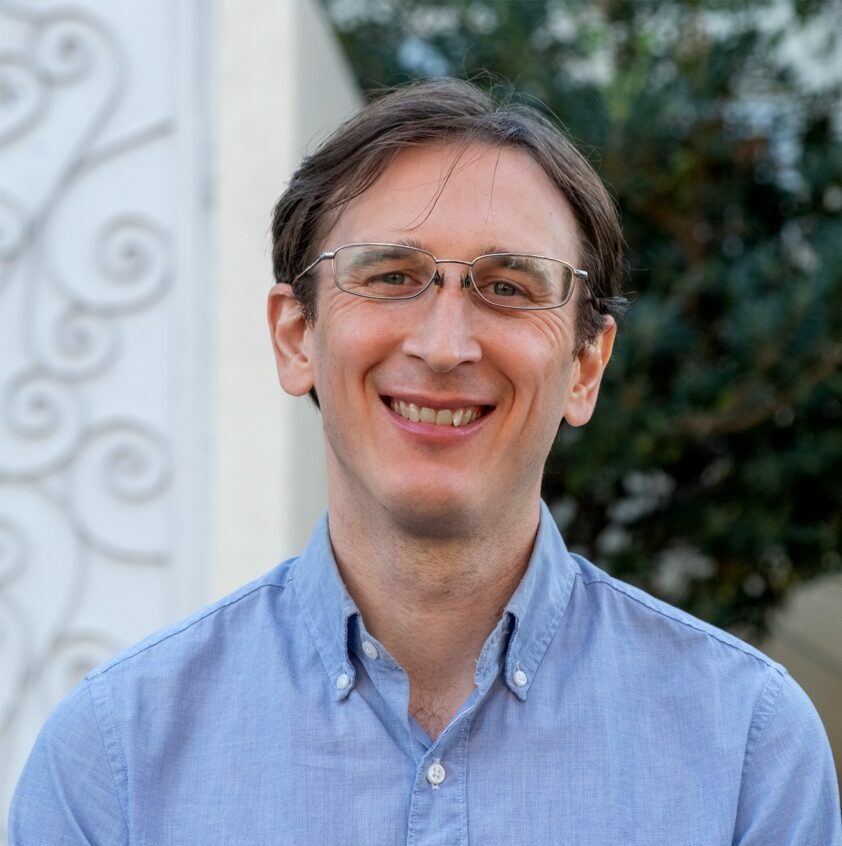We’re excited to introduce you to the always interesting and insightful Julie Bayer Salzman. We hope you’ll enjoy our conversation with Julie below.
Julie, so many exciting things to discuss, we can’t wait. Thanks for joining us and we appreciate you sharing your wisdom with our readers. So, maybe we can start by discussing optimism and where your optimism comes from?
Where does my optimism come from? The short and easy answer: my mom. She’s one of the most upbeat people you’ll ever meet. She encouraged me to go after whatever it was I wanted from a young age, whether it was running for student politics, going off to school in a different part of the country, or traveling around the world. She gave me “wings”, as she likes to say (it’s true!), and the foundation needed to take risks, be brave, and know that there was always love to return to.
When I entered my teenage years, though I wasn’t terribly “moody”, I certainly had my moods, and was pretty self-critical. My parents’ marriage was crumbling, as was our family, and that’s when the optimism started to fade. When I got into my late teens and early 20s, a more pessimistic and cynical side took root as “adulting” set in, and that’s when I had to start actively working on my mental health – both internally and externally. I turned to physical movement – at first in the form of running, and then eventually, yoga. Exercise had always been a mood-booster, and I ran cross country in high school, so it was easy. To this day I am so much more productive and overall happier when I start the day with movement.
Towards my later 20’s, exercise for the sake of an endorphin high was no longer enough. I started to recognize both a pattern of catastrophic thinking, and a tendency to ruminate. It started when I was about to move in with my then-boyfriend/now-husband. For reasons which I came to understand many years later, I had managed to convince myself that it wasn’t safe to be too happy, because something was guaranteed to go wrong. But I really did not want this relationship with such a promising partner to go south, so I thumbed through the insurance book and found a therapist with a name that sounded intriguing (I do the same with wine labels, and I’m not particularly proud of that, but that’s how I roll). Turns out she was exactly the right person for me. For the next 17 years we did a deep dive into my history and how it shaped me, but most importantly, she taught me how to break patterns/habits and form new, healthier ones.
Meditation was part of her recommendation (it seemed to come up repeatedly from other sources. too), which led to a mindfulness practice, and it was through that practice that I learned how being more present in my life, rather than lingering in the past or worrying about the future, was the return ticket to that more optimistic (albeit cautiously optimistic) person from my youth. When you start being more aware of your thoughts and actions, you naturally start engaging with people and life differently. It’s that magic pause that enables you to live with curiosity and wonder, and when you go into your interactions with those qualities, I believe it leads towards a more optimistic view overall. I see more good now in the world, and partly that’s because I came to have more control over how I want to feel, be, or act in any given situation — less impulse, more reflection. It’s hard not to be optimistic when you slow down and take a breath because your nervous system is calmer and you realize it’s just a better way to live when you give people the benefit of the doubt, embrace life’s challenges, work towards more creative solutions, and focus on the beauty and goodness surrounding you.
Thanks, so before we move on maybe you can share a bit more about yourself?
My focus at the moment is on completing a series of short films on mental health, specifically about how a mindfulness practice is absolutely essential in navigating the range of emotional experiences we have over the course of a lifetime. So far we’ve addressed anger, anxiety, depression, and addiction. The current film in production is on grief, and the final film will be on trauma. Each film speaks to a particular age range, while simultaneously appealing to a broad audience. I started this series in 2015 and have crowd-sourced all of the funding. The films are made available online publicly, free of charge, in hopes to reach as many people as possible – especially those who need them the most.
The inspiration came from my son, then a kindergartener, and his fellow 5 year old friend, who started talking about their amygdala over hot chocolate (yes, you read that correctly). They sat at the kitchen table discussing what happens to the brain when a person gets angry, and how to calm down using mindful breathing – things they were learning at school. I was in complete disbelief and quickly enrolled in a course on mindfulness myself. Thus, our first film “Just Breathe” was born – an experiential short film in which elementary school kids teach the audience about anger, brain science, and breathing.
Being a mom made me more cognizant of the need to teach myself how to better deal with my emotions, and cultivate a healthier, more productive way of responding to upsets, so that I could model emotional intelligence — it’s just not something most of us were taught. I see so many adults struggling to deal with the difficulties of life, and so the need for a series of films that spans many ages is clear to me. As a global village, we need to seriously wise up, because we’re headed for danger.
After “Just Breathe”, we made “Release”, which focuses on anxiety and middle schoolers; soon after, “Into Light”, about depression in high school; and now the most recent film, “A Good Day”, on addiction in mid-life, is in the film festival circuit. We’ll circle back to the young adult years and trauma eventually, but not before we make what will be the final film in the series on grief and loss for older folks.
The timing of this series is unintentionally coinciding with my sons’ (we now have two of them) growth, in the sense that I will finish the series as they become independent (i.e. get their drivers’ licenses and go off to college). When that happens — the series is done and the kids are off — I plan to focus fully on work and develop longer projects. Until then, it’s smaller films, shlepping kids around LA, and keeping the house running smoothly and everyone alive.
Truth is, work is what keeps me happy. As much as I love being a mom, I always knew it’d never be enough. I have loved making films from Day 1, and spent a over a decade doing commercials, docs, music videos, TV, and independent films before I became a mother. What I failed to foresee was how difficult it would be do try to “do it all”, but in my own way, that’s what I’m doing – just on a small scale. Something that’s always been important to me is balance, and I’ve been fortunate to be able to strike that balance with the help of a fabulous husband/filmmaking partner, and a strong community of friends to jump in when I need help – not to mention extremely lucky to find people who love and support my work! I could not be doing this without the generosity and backing of donors.
Looking back, what do you think were the three qualities, skills, or areas of knowledge that were most impactful in your journey? What advice do you have for folks who are early in their journey in terms of how they can best develop or improve on these?
One thing I’ve always believed in is having some sort of rough sketch for how you want your life to look in a year, five years, ten years down the line. You don’t need to know the details, but you have to have some sort of vision to which to calibrate your inner compass, otherwise you can get lost fairly easily. Spend some time reflecting on what makes you tick. Find the people who are doing the things you love, work with them, learn from them, and don’t give up. Plans are great, but don’t get too attached to them. Be able to pivot when necessary. It makes life a lot easier when you’re flexible. The last thing I would say is try to relax into the flow of your own life. It’s really easy to compare yourself to others and start thinking less of yourself if you haven’t accomplished as much as someone else has (trust me, I’ve suffered from this too much!). Our society is obsessed with achievement, but what is one person’s achievement might be another person’s failure. Comparisons are dangerous, and self-sabotaging. Your life is your life, and no one else’s. Finding gratitude for what you have is a far happier way to live than comparing yourself to someone else and getting stuck in the narrative that you’re “not enough”. When I get caught in that miserable state, I grab my camera, take a walk, and go in search for beauty in my neighborhood. I’ve heard them called “awe walks”. Or I do some yoga, Or throw on some good tunes and dance. I have to literally move through the negativity in order to come out the other side, re-set my energetic level, and keep forging ahead.
What has been your biggest area of growth or improvement in the past 12 months?
BOUNDARIES! I’ve never been particularly good at them, but in the past year I’ve gotten much better at stating my needs, knowing when to say no, and not feeling guilty for it, either. It hasn’t been easy, but absolutely necessary.
I’ve also gotten better at forgiveness, which has led to a release of old anger. Or maybe the anger was released first, which led to the forgiveness? I’m not sure which came first, really. The turning point occurred right after my 50th birthday, on a black sand beach in Iceland in the middle of winter. It was icy cold and windy as hell, and I had this internal dialogue going in my head that wasn’t at all healthy. It was day 6 of a solo trip and I suddenly felt really alone, unappreciatively so. It triggered the deep-seated anger that had boiling beneath the surface for years – anger towards a few specific people by whom I’d been hurt, and anger towards certain circumstances in my life. I felt like a volcano ready to erupt! And then I looked down, and next to my foot was an indentation in the sand, with ice forming in the crevasses that made it look like an ear. I heard a whisper “You are EXACTLY where you need to be”. It gave me pause, and a chance to flip the narrative. Instead of thinking “I’m standing here alone because of x, y, and z…” as a negative, I flipped it to a positive: “X, Y, and Z led me here, and this is f*ing AMAZING!”. My heart swelled with gratitude towards those people and the circumstances that lead me to that exact moment.
It was a moment that will live with me forever – the moment when I could genuinely feel that life was happening FOR me, not TO me, enabling me to relax into the flow and be grateful for where I was – not just in that very moment (on a freezing cold beach in the dead of winter), but in the big picture (part-time filmmaking wife and mother of two in Los Angeles).
It’s not always easy for a wife/mother/daughter/sister/dog-walker/caregiver/housekeeper/friend/etc to have boundaries. Often her needs are last on the list. If you’re a woman who knows what it’s like to be a breadwinning professional (like I was at the time I got pregnant) and you see your ambition get derailed by circumstances (some societal, some marital), much of which is out of your control, resentment builds. And it’s toxic. The anger is real! At some point you have to accept the things you cannot change, change the things you can, and know the difference between the two — that’s wisdom. (And yes, the AA Serenity Prayer.) I guess it took turning 50 to really understand this. We can intellectualize a ton, but actually feeling/knowing/believing with your heart — living it in a truly authentic way — is a different thing entirely.
Contact Info:
- Website: wavecrestfilms.com
- Instagram: https://www.instagram.com/wavecrestfilms/
- Facebook: https://www.facebook.com/julie.bayer.73
- Linkedin: https://www.linkedin.com/in/julie-bayer-salzman-8134239/
- Youtube: https://www.youtube.com/@juliebayersalzman/videos
- Other: VIMEO — https://vimeo.com/user12049479









